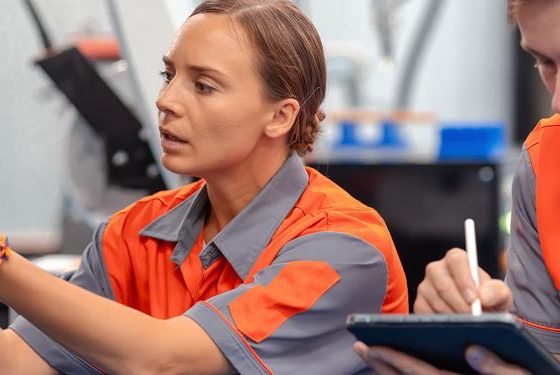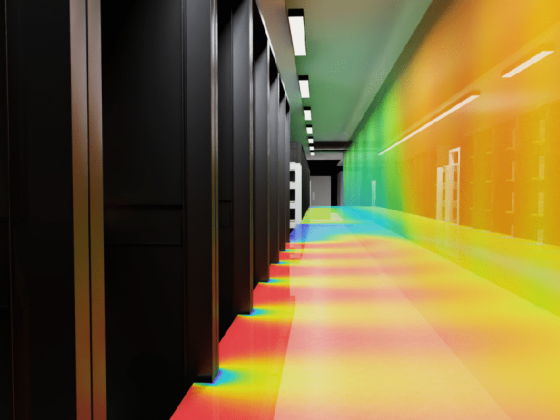- Mass unemployment will occur because of robotics and AI.
- Hospitality, management and creativity cannot be substituted by AI.
- We need to acquire and refine more sophisticated abilities in these areas.
The COVID-19 crisis is going to accelerate a number of changes and transformations in human society. Notably, the pandemic is expected to significantly accelerate the Fourth Industrial Revolution.
This is because the coronavirus crisis forced people to stay at home and minimize contact to contain the spread of infection. As a result, contactless technology will become even more widespread in society.
From our partners:
The technologies that will disseminate fastest are in digital transformation (DX), including online conferencing, virtual reality and augmented reality (VR and AR), robotics and Artificial Intelligence (AI), drones and automated driving. It was the Fourth Industrial Revolution that supported the rapid development of all these technologies.
So, what are the consequences of this acceleration the Fourth Industrial Revolution caused by the coronavirus crisis?
Massive unemployment will occur because the technologies of robotics, AI, drones and automated driving that are proliferating in society in response to the crisis. This revolution will take jobs away from many workers in a variety of occupations.
Those who are engaged in simple manual work that can be replaced by technologies such as robots, drones, and automated driving will lose their jobs. However, these people can probably get new jobs by learning slightly more advanced skills in manual labour, even if their jobs are eliminated.
A more serious unemployment issue created by the Fourth Industrial Revolution is the prospect of many workers previously engaged in the knowledge economy losing their jobs to rapidly developing AI.
Notably, many of those to be thrown out of work are people engaged in jobs that depend on the application of professional knowledge and judgement based on logical thinking – two skills in which AI has an overwhelming advantage. Lawyers, accountants, doctors, pharmacists, and other professions are no exception.
So what kind of abilities should we develop in the coming years, given the rapid progress of the Fourth Industrial Revolution? And what abilities should nations and businesses focus on in their human resource development?
While a broad range of discussions have taken place at the World Economic Forum’s annual meeting in Davos, and the Global Agenda Council, many experts are in agreement over the three advanced abilities that cannot be substituted by AI: hospitality, management and creativity.
In reality, however, rapidly developing AI technologies are going to replace these three abilities at rudimentary levels. Therefore, we need to acquire and refine more sophisticated abilities in these areas so they cannot be replaced by AI.
With regards to hospitality, AI can easily take over standardized services based on verbal communication, such as reception and information services. For this reason, humans will need to acquire more advanced hospitality skills.
First is the ability to undertake non-verbal communication. In other words, we need to improve our ability to listen to the silent voice of customers, to grasp what they are feeling and communicate warm feelings that transcend words.
Second is the ability to show deep empathy to customers. This is the most important ability that enables us to exercise our non-verbal communication skills at the highest level. Needless to say, these two skills can never be replaced by AI.
Secondly, with regards to management, AI is set to replace workers in tasks such as financial management, materials management, human resource management and project management, areas in which AI’s abilities are expected to exceed those of humans in the future. This will direct people towards more advanced management tasks that cannot be replaced by AI. The following two abilities play a key role in this area.
First is the ability to undertake growth management. This is the ability to support organization members to develop their skills and grow professionally, and this is founded on coaching ability.
Second is the ability to employ mind management. This is the ability to support the recovery of organization members in distress when they suffer from issues arising from interpersonal relationships or other problems, and it is founded on counselling skills.
Both of these skills, which can never be replaced by AI, will be extremely important for managers and leaders in the workplace in the forthcoming Advanced Knowledge Society.
Regarding creativity, AI will never be able to substitute genius: comprising skills such as the invention of innovative technology and the proposition of novel designs. Such abilities are, however, out of reach for most individuals.
So what constitutes creativity, which everyone can demonstrate in the age of AI? First is the ability to perform collective intelligence management. This is the ability of leaders to manage organization members by putting them together, encouraging them to share their knowledge and wisdom, and facilitating the emergence of new knowledge and wisdom arising from that process.
The vital elements that enable the demonstration of this skill are the ability to express a vision that excites members of your organization; and the ability to undertake ego management, creating a forum where members can transcend the individual and cooperate with one another.
Second is the ability to realize new ideas in an organization. This is the ability to go beyond simply proposing new ideas, to attractively explain the idea, skillfully persuade the boss, and move the organization forward smoothly to implement the idea.
In fact, the creativity that is truly required in a corporate organization involves much more than the ability to propose new ideas. It also requires the two other abilities that can never be replaced by AI: the ability to perform collective intelligence management and the ability of realizing new ideas in an organization.
This article is republished from WEForum.
For enquiries, product placements, sponsorships, and collaborations, connect with us at [email protected]. We'd love to hear from you!
Our humans need coffee too! Your support is highly appreciated, thank you!










